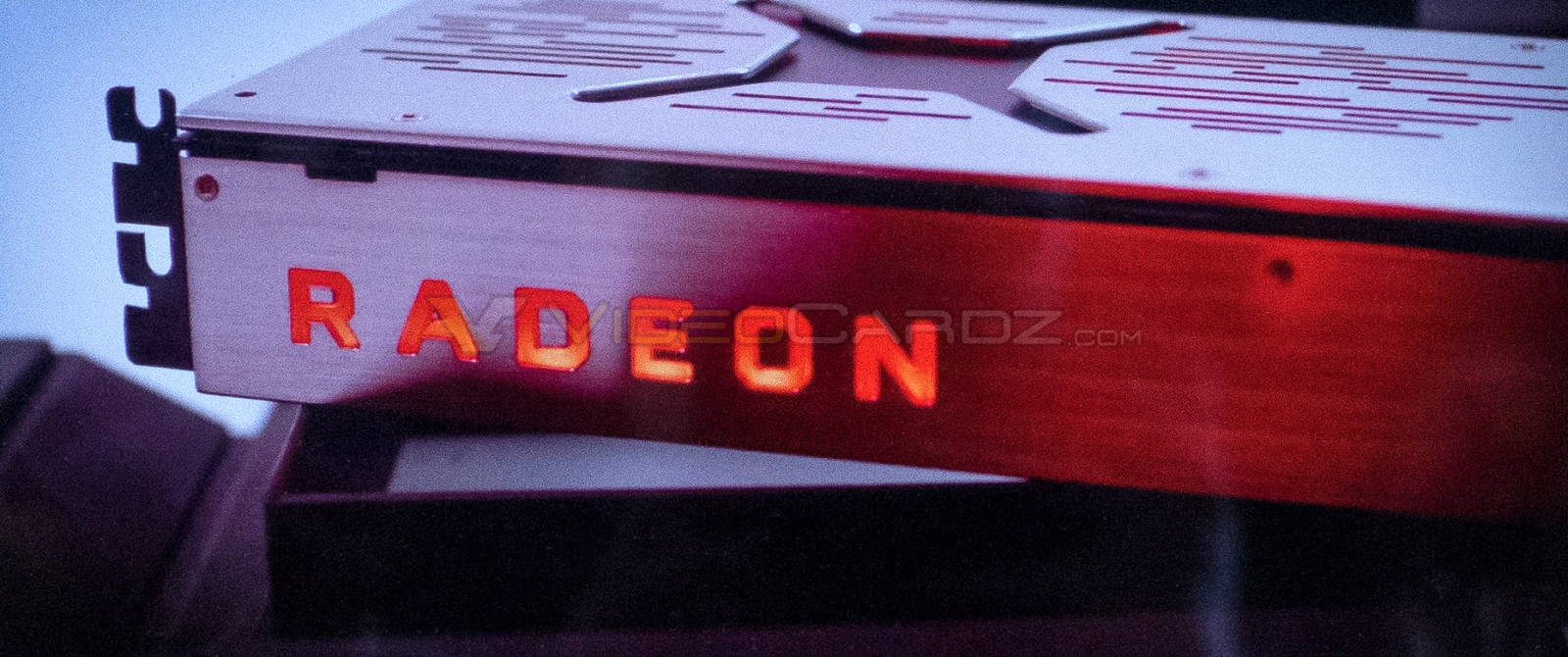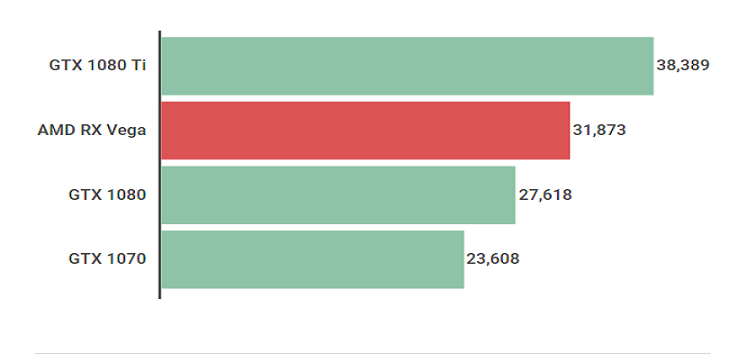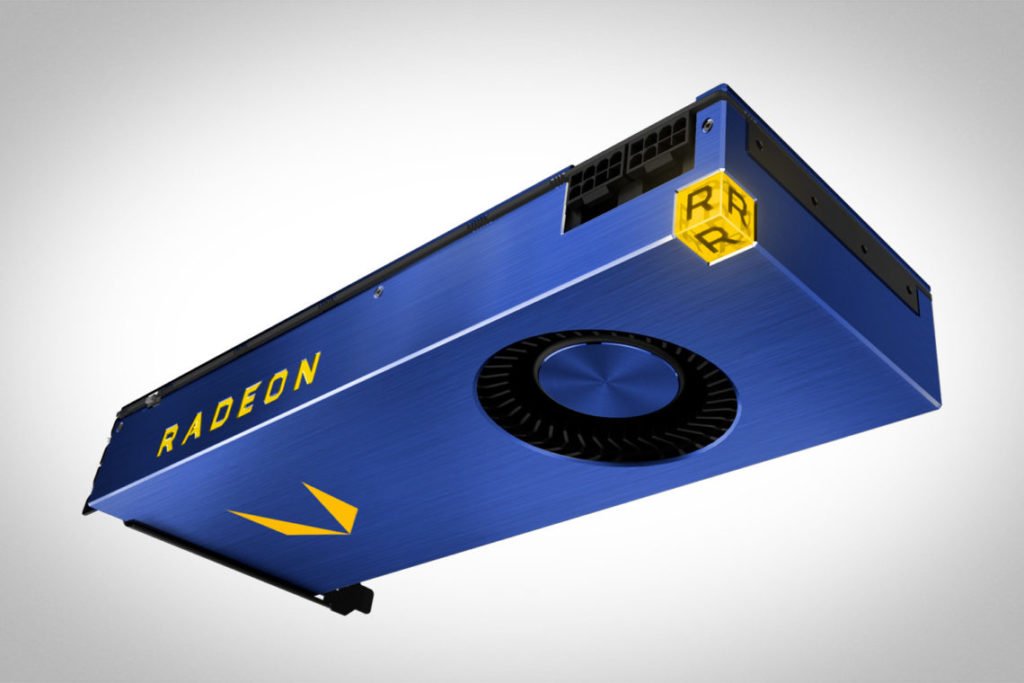AMD RX Vega 3DMark shows GPU sitting between GTX 1080 and 1080 Ti

AMD is set to launch their next generation Radeon RX Vega GPU at SIGGRAPH, which kicks off at the end of this month. Given the launch is just around the corner, it’s not surprising to see leaks and rumors popping up every so often. This week, RX Vega 3DMark performance emerged online pitting it up against Nvidia’s high-end Pascal cards.
AMD Radeon RX Vega 3DMark Performance Leaked
The leak shows a new 3DMark 11 benchmark entry under device ID ‘687F:C1’. This is the same device ID we’ve seen on previous AMD demonstrations and is expected to be the top-end RX Vega card.
The gaming Vega variant scores 31,873 in the benchmark, which is pretty impressive when compared with 27,618 for the GTX 1080. To put the figures into perspective, the RX Vega here outperforms the GTX 1080 by around 15% and the GTX 1070 by 35%.
READ ALSO: AMD Ryzen 5 1600 dethrones Core i7-7700K to Lead Amazon’s Best Sellers List
3DMark 11 Graphics Scores

The AMD card is still some ways off the pace of a GTX 1080 Ti which is roughly 20% faster. It’s worth mentioning that the 3DMark 11 performance is directly related to GPU core counts. Meaning, 1080 Ti’s lead over other cards could shrink in real-world gaming scenarios depending on the game and the resolution tested.
Gaming-focused RX Vega Specs – 1630MHz Clock Speed, 8GB HBM2 & More
The RX Vega 3DMark test shows the GPU using with 8GB of HBM2 and running at a core speed of 1630MHz. That’s a modest 30MHz improvement over the Vega Frontier Edition.
Not only this but the RX Vega also appears to be using correct drivers unlike the Vega FE which currently doesn’t have software optimised for gaming applications. This explains why the pro-level card is sitting between GTX 1070 and GTX 1080 in the benchmarks.

Furthermore, the HBM2 frequency of RX Vega is identical to that of Vega FE at 945MHz, delivering a total bandwidth of 484GB/s. The card is also expected to feature 12.5 TFLOP of FP32 compute.
Keep in mind this RX Vega 3DMark is still an early benchmark, so it may not fully represent the final product. But, it does give us a glimpse into what we can expect from AMD’s upcoming high-end graphics card in terms of performance.